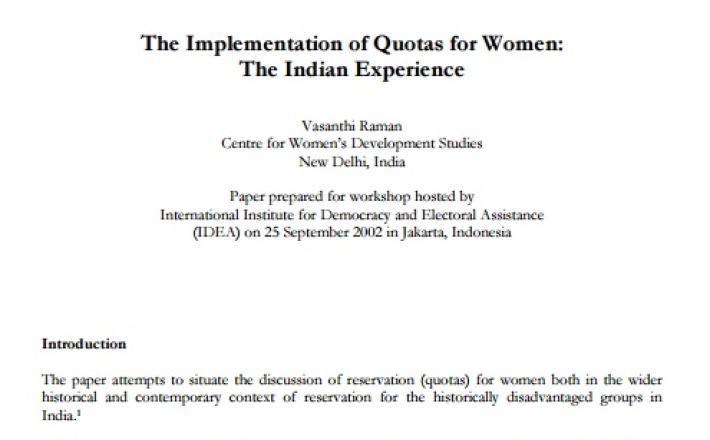The Implementation of Quotas for Women: The Indian Experience
The paper attempts to situate the discussion of reservation (quotas) for women both in the wider historical and contemporary context of reservation for the historically disadvantaged groups in India.1 The paper also examines the contemporary experience of one-third reservation for women in the local self-governing bodies (panchayats and municipalities) which has been constitutionally mandated by the 73rd and 74th Amendment of the Indian Constitution, which came into effect in 1994. And finally we attempt to examine and analyse the different positions on the current demand for onethird reservation for women in the assemblies at the state level and in the Union Parliament, that is, the Eighty-Fourth Amendment Bill, which is due for discussion in the parliament. The paper focuses on political reservations, since it is this that has been at the forefront of policy and debates both among policy-makers and the women’s movement.

The paper attempts to situate the discussion of reservation (quotas) for women both in the wider historical and contemporary context of reservation for the historically disadvantaged groups in India.1 The paper also examines the contemporary experience of one-third reservation for women in the local self-governing bodies (panchayats and municipalities) which has been constitutionally mandated by the 73rd and 74th Amendment of the Indian Constitution, which came into effect in 1994. And finally we attempt to examine and analyse the different positions on the current demand for onethird reservation for women in the assemblies at the state level and in the Union Parliament, that is, the Eighty-Fourth Amendment Bill, which is due for discussion in the parliament. The paper focuses on political reservations, since it is this that has been at the forefront of policy and debates both among policy-makers and the women’s movement.